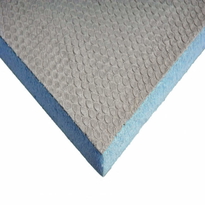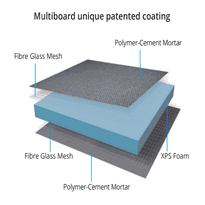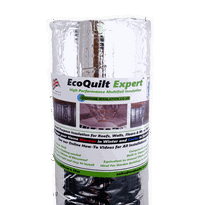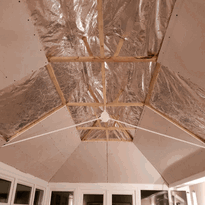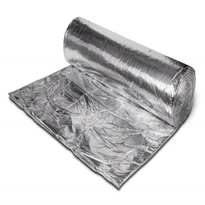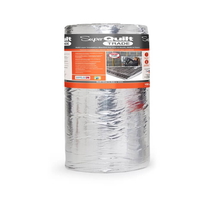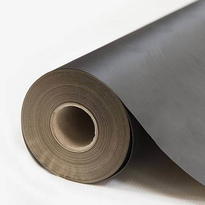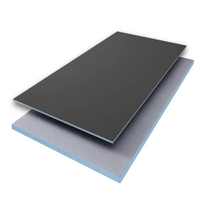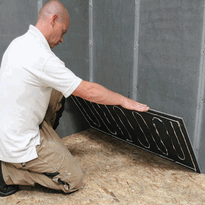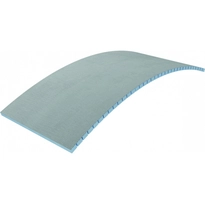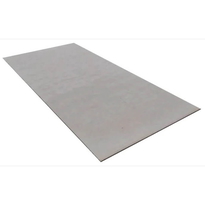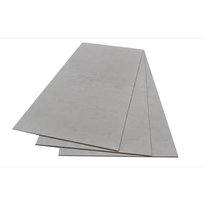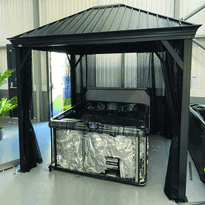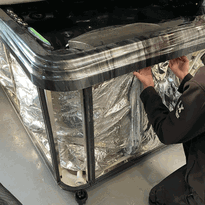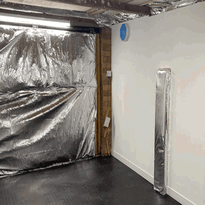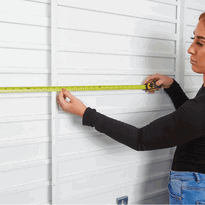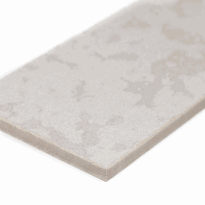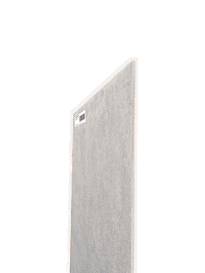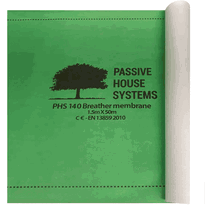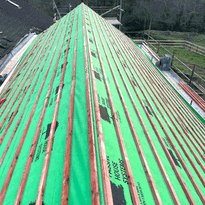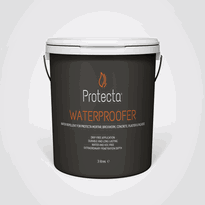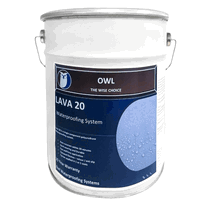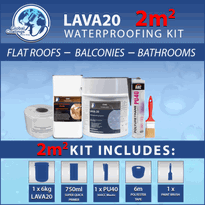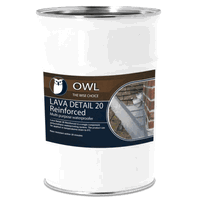Insulated Basement
Insulating a basement enhances energy efficiency by minimising heat loss through walls and floors, which can lead to reduced heating and cooling expenses. Adequate insulation also helps to prevent moisture accumulation, a factor that can result in mould growth and structural damage, while simultaneously improving overall comfort and indoor air quality.
Common insulation materials include rigid foam boards, spray foam, and fibreglass batts, all of which should be selected with a focus on moisture resistance and correct installation techniques.
Furthermore, employing effective strategies can significantly boost the comfort and durability of your basement, ensuring it remains a functional and pleasant space within your home.
The Importance of Basement Insulation for Energy Efficiency
Basement insulation is vital for enhancing a home's energy efficiency. It significantly reduces heat loss through basement walls, which can represent a substantial portion of overall energy consumption. By insulating a basement, homeowners can notably decrease their gas usage, resulting in a more economical energy bill. Research indicates that insulating basement walls can improve overall home comfort while reducing energy costs. For an average-sized basement, adding appropriate insulation can yield considerable savings during colder months. Effective insulation not only lowers heating expenses but also creates a more comfortable living environment. It minimises drafts and curtails air leaks, which improves the overall energy performance of the home. When basement insulation is combined with roof insulation, the benefits are even more pronounced, allowing homeowners to enjoy a more cohesive sense of comfort and efficiency within their properties. Investing in proper insulation is a smart choice for those looking to enhance energy efficiency and create a warm, inviting atmosphere in their homes.
Key Benefits of Proper Basement Insulation
Proper basement insulation provides numerous advantages, including a reduction in energy expenses and an enhancement of indoor comfort. It plays a crucial role in managing moisture levels, thereby minimising the risk of mould growth and safeguarding the integrity of the property. Turns basement into a conditioned space These benefits highlight the importance of insulation in fostering a healthier and more efficient living environment. Moreover, effective insulation can contribute to a more consistent temperature throughout your home, making it more pleasant year-round. By investing in quality basement insulation, homeowners can create a more inviting space that not only improves comfort but also adds value to their property.
Energy and Cost Savings
Effective basement insulation can result in significant energy and cost savings for homeowners in the UK. Basements can contribute to a considerable portion of a home’s overall heat loss, so proper insulation is essential. Insulating walls to an appropriate R-value can help lower heating expenses during colder months. Average savings of 15% on heating and cooling, or 11% on total energy costs. Insulation also reduces heat loss more efficiently compared to insulating ceilings, as there are fewer openings for wiring and ductwork. Over a typical heating season, homeowners could see notable savings by insulating their basement walls in colder climates. Generally, these improvements can lead to an average energy saving on heating and cooling, with reasonable payback periods depending on local climate conditions and energy prices. Investing in proper insulation not only offers long-term financial advantages but also enhances overall home comfort. It’s a wise choice for those looking to improve energy efficiency and reduce household bills.
Moisture and Mold Control
Moisture and mould control are essential advantages of properly insulating a basement, as they help create a dry and healthy environment.
Basement insulation and encapsulation effectively block moisture, water, and humidity from penetrating by sealing walls, floors, and ceilings with vapour barriers. Adequate insulation on the warm side helps prevent condensation, which reduces dampness.
Closing vents, sealing doors, and employing dehumidifiers help maintain appropriate humidity levels, deterring mould growth. Keeping the area dry prevents mould spores from thriving, which diminishes unpleasant odours, enhances indoor air quality, and lowers health risks such as respiratory issues.
In addition, effective moisture control safeguards structural elements like wood and metal from rot and rust, thereby extending the lifespan of the basement. Proper insulation also enhances energy efficiency by reducing heat transfer and maintaining consistent indoor temperatures.
Choosing the Right Insulation Materials for Your Basement
Choosing the right insulation for a basement is crucial for ensuring durability and moisture resistance, both of which are essential in preventing issues such as mould growth. Homeowners should consider the cost and ease of installation when selecting insulation materials, as some options are more accessible and budget-friendly than others. Fiberglass insulation comes in pre-cut panels or rolls, making it a simple choice for many DIY homeowners. By balancing these factors, individuals can choose insulation that not only offers long-lasting performance but also aligns with their financial constraints and skill levels. It's important to understand the various insulation types available, as each offers distinct advantages that can cater to specific needs in a basement environment. Ultimately, making an informed choice will contribute to a comfortable and healthy living space below ground.
Material Durability and Moisture Resistance
Selecting the appropriate insulation materials for a basement necessitates careful consideration of their durability and moisture resistance. Rigid foam boards, such as Expanded Polystyrene (EPS) and Extruded Polystyrene (XPS), are excellent choices due to their exceptional resistance to moisture. XPS, in particular, features a closed-cell structure that performs well in damp environments. These boards can last several decades when installed correctly. Their high R-values make them particularly effective at insulating against heat transfer. Spray foam insulation is another robust option, renowned for its exceptional durability. It effectively serves as a moisture barrier by sealing air and vapour gaps, thereby enhancing its longevity. In contrast, fiberglass insulation exhibits limited moisture resistance and tends to have a shorter lifespan, making it less suitable for basements prone to dampness. When making insulation choices, it's essential to prioritise materials that maintain their performance and effectively mitigate water issues, contributing to a safer and more comfortable home environment.
Cost and Installation Ease
Cost and ease of installation are crucial considerations when selecting insulation materials for a basement. Various options can differ substantially in both price and complexity of installation.
For instance, fiberglass insulation is a popular choice, known for its affordability and DIY-friendly nature. Rigid foam insulation, while slightly pricier, offers good thermal resistance and requires some tools for installation. Spray foam insulation provides superior insulation performance but is generally more expensive and necessitates professional installation due to its complexity. Conversely, batt insulation is the most economical option, although it requires careful sealing to ensure effectiveness.
Some materials, like fiberglass and batt insulation, are accessible for DIY enthusiasts, whereas rigid foam and spray foam tend to be better suited for professional installation. Choosing the right insulation material depends on your budget, skills, and insulation needs to optimize cost and ease of installation.
Insulation Type |
Cost per sq.ft. |
Installation Ease |
| Fiberglass | Affordable | Easy, DIY-friendly |
| Rigid Foam | Moderate | Requires tools |
| Spray Foam | Higher-end | Professional installation |
| Batt | Economical | Easy, needs sealing |
Best Practices for Insulating Basement Walls
Ever wondered how to maximise the effectiveness of insulation for your basement walls? To achieve optimal results, it's essential to follow best practices that ensure both efficiency and durability.
Choose moisture-resistant materials such as rigid foam boards, including XPS, EPS, or polyisocyanurate. These materials serve as effective insulators while also acting as vapour barriers, helping to prevent issues like mould and rot. Selecting materials with high moisture resistance is crucial to prevent long-term damage caused by dampness.
Ensure proper attachment of insulation by affixing the foam directly to the concrete walls with a foam-compatible adhesive. Following this, frame over the insulation using pressure-treated timber to mitigate any risk of moisture damage.
Seal all joints and penetrations with high-quality tape and caulk to eliminate air leaks and minimise vapour diffusion. This approach will help maintain a dry, energy-efficient environment in your basement.
Insulating Basement Floors: Methods and Materials
Insulating basement floors effectively requires selecting the appropriate materials and employing proper installation methods to ensure both thermal performance and moisture control.
Foam board insulation, such as EPS or XPS, is a popular choice due to its moisture resistance and excellent insulation properties. Closed-cell spray foam creates an airtight seal and offers high R-values, though it typically necessitates professional installation and careful management of ventilation.
Fibreglass insulation provides decent coverage, usually in batts, but is less resistant to moisture. Eco-friendly alternatives like cellulose can serve as a complement to other systems for those seeking sustainable solutions.
Installing rigid foam directly onto the concrete or using spray foam beneath subfloor framing is effective in preventing heat loss and addressing moisture issues. Proper installation techniques are vital for maximizing insulation effectiveness and avoiding issues like mold or thermal bridging. It is essential to place vapour barriers beneath insulation to halt moisture migration. Proper installation guarantees warmth, comfort, and energy efficiency in the basement.
Moisture Control and Mold Prevention Strategies
Controlling moisture in a basement is vital for preventing mould growth and protecting the overall structure of the home. Sources of moisture, such as leaks, soil saturation, and inadequate drainage, can lead to persistent dampness.
To combat this, homeowners should:
Ensure proper exterior grading to create a slope away from the foundation, preventing water pooling.
Utilise dehumidifiers and vapour barriers to reduce indoor humidity levels and limit moisture transfer.
Inspect and seal cracks and joints in the foundation using epoxy or foam to prevent water ingress.
Additional strategies include maintaining gutters and downpipes, installing waterproof membranes, and setting up sump pumps with alarms.
These straightforward steps instil a sense of security and belonging, ensuring that the basement remains dry, mould-free, and safe for everyone in the home.
Common Mistakes to Avoid When Insulating Your Basement
Many common mistakes can undermine the effectiveness of basement insulation and lead to issues such as moisture buildup, mould growth, or energy loss.
One frequent error is using inappropriate insulation materials. For instance, placing fibreglass directly against concrete walls can trap moisture, increasing the risk of mould. Spray foam is a superior option as it functions both as insulation and a moisture barrier, helping to mitigate future problems.
It is also crucial to use treated timber for framing, as untreated wood can absorb moisture from the concrete, resulting in decay.
Avoid using plastic vapour barriers over fibreglass, as these can trap moisture and hinder the natural breathability of walls. Furthermore, selecting insulation specifically designed for below-ground use, with good moisture resistance, is vital for ensuring long-lasting performance.
Proper material selection is essential for creating a durable and healthy basement environment.
Enhancing Home Comfort and Reducing Noise With Basement Insulation
Basement insulation is essential for enhancing overall home comfort and minimising noise levels within a property. It contributes to a more stable indoor environment by reducing drafts and cold spots, making your living space more pleasant.
Furthermore, it effectively absorbs sound vibrations, creating a quieter and more serene atmosphere.
Here are some key benefits of basement insulation:
It helps to lower energy bills by maintaining consistent temperatures throughout the year.
It acts as a barrier against noise from mechanical systems and external sources, thereby improving privacy.
It reduces echoes and reverberations, making basement areas more comfortable for family activities or work.
Investing in quality insulation not only enhances comfort but also adds value to your home.
How Basement Insulation Contributes to Overall Cost Savings
Insulating a basement can lead to considerable savings on energy bills by minimising the amount of heat lost through the walls. This helps homes maintain warmth during the winter months and remain cooler in the summer, thereby reducing the strain on heating and cooling systems.
A well-insulated basement can contribute significantly to energy efficiency. When combined with effective air sealing, homeowners frequently experience a reduction in energy costs ranging from 15% to 20%.
The table below outlines some key benefits associated with basement insulation:
Benefit |
Details |
Approximate Savings |
| Energy Bill Reduction | Lowers costs associated with heating and cooling | 15-20% reduction in annual expenses |
| Short Payback Period | Investment typically recovered within a few years | Varies based on climate and system efficiency |
| Long-Term Savings | Decreased energy demand, leading to lower utility bills | Significantly reduced costs over time |
Conclusion
Proper basement insulation enhances energy efficiency, reduces heating and cooling expenses, and helps prevent moisture issues. Selecting the appropriate materials and adhering to best practices guarantees effective installation and long-lasting advantages. When insulation is executed correctly, it significantly improves home comfort, diminishes noise levels, and contributes to overall savings.
Avoiding common pitfalls is essential to maintaining a healthy, well-insulated basement. Investing in suitable insulation provides a practical means of enhancing your home's value and energy performance. With the right approach, you can create a more comfortable living space while also being kind to the environment.
Overall, the benefits of quality basement insulation extend beyond mere cost savings; they also include improved air quality and a more pleasant atmosphere in your home.
